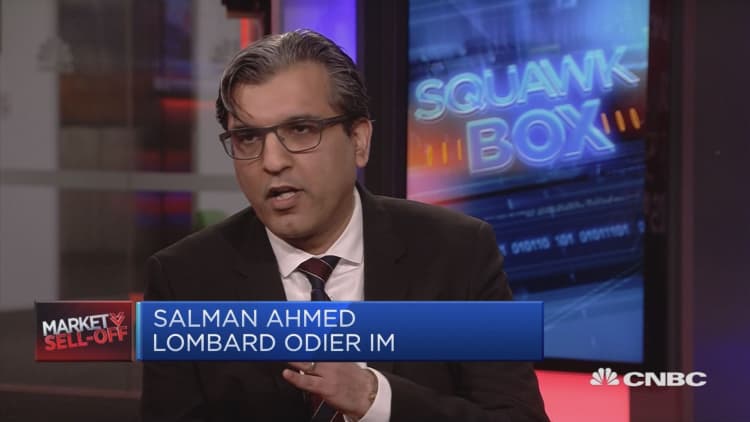
The current global market sell-off was driven by computers and not traders' fears over market indicators, a strategist told CNBC on Tuesday.
More and more market transactions are made through algorithm trading — also known as algo trading, it uses advanced mathematical models to make high-speed trading decisions. Therefore, the equity sell-off seen since Friday was greatly driven by technical mechanisms, Salman Ahmed, chief investment strategist at Lombard Odier, said.
"The rise of algorithm-based trading means that there are in these algorithms some levels which trigger sell-off, i.e. sell orders," Ahmed said.
"Yes, I can argue that we needed some kind of correction, given what has happened over the last few months. But the ferociousness of the intra-day sell-off is driven by these pre-set sell orders, which come programmed in these algorithms automatically."
On Monday, the Dow Jones industrial average dropped 1,175.21 points and briefly declined by more than 1,500 points during the session.
Since Friday, global stock markets have seen a sea of red — something that traders hadn't seen over the last year — with equity markets hitting several new-highs during that period. Most analysts believe the sell-off seen over the last three trading sessions is therefore a "healthy" correction.
"We have to consider one thing, this correction is in the general scheme of things a healthy development. I would have been way more worried if such a correction wouldn't have happened, given what we've seen over the last few months," Ahmed said.
Eric Moore, income fund manager at Miton Group, told CNBC on Tuesday that there was no reason to panic, at least for now.
"Nothing that has happened over the last 48 hours has made me think that the dividend characteristics of my portfolio are worse than I thought before," he said.
Ahmed pointed out that although there was no indication of an economic recession in the near-term, investors needed to be careful about how they absorbed risk.
"The global environment and the indicators we are looking at indicate no probability of a recession in the next six to nine months, so things will stabilize. But, yes, we have to be very careful about how we are taking risk and what is an asset class and what's not an asset class," he said.


